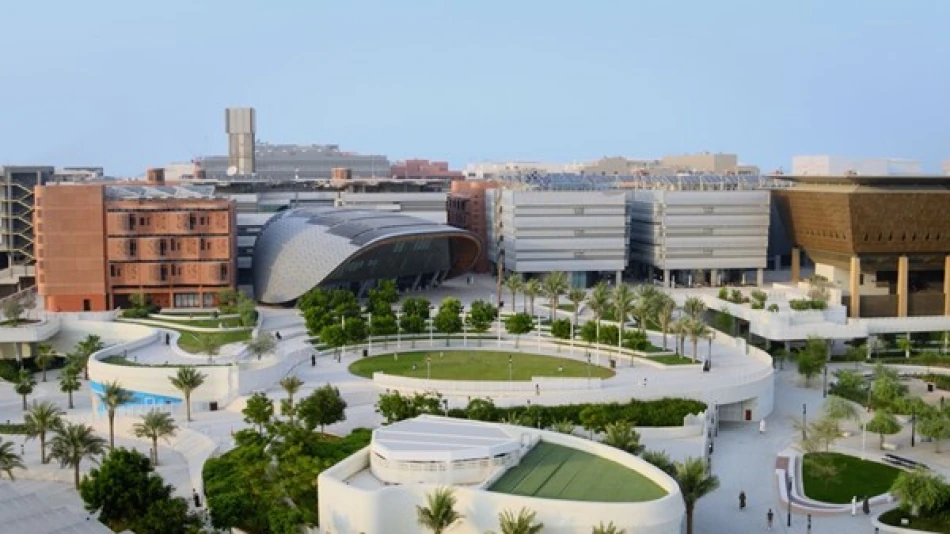
Masdar City Solidifies Its Global Leadership in Sustainable Urban Development
Abu Dhabi's Masdar City Emerges as Blueprint for Carbon-Neutral Urban Development
Masdar City has released its third Environmental, Social, and Governance (ESG) report, showcasing measurable progress toward becoming a global template for sustainable urban development. The Abu Dhabi-based eco-city achieved a 22.7% reduction in energy intensity and avoided over 5,500 tons of carbon emissions in 2024, positioning itself as a critical testing ground for technologies and policies that could reshape urban planning worldwide as cities race to meet climate targets.
The UAE's Climate Ambitions Take Physical Form
Masdar City represents more than an urban experiment—it's a strategic asset in the UAE's broader push toward carbon neutrality by 2050. The development combines sustainable infrastructure, a thriving free zone, and a diverse innovation community, creating what CEO Ahmed Baghoum describes as a "living model" that successfully integrates sustainability, innovation, and community building.
This approach mirrors similar initiatives in Singapore's sustainable city districts and Copenhagen's carbon-neutral neighborhoods, but Masdar's scale and integration of renewable energy infrastructure sets it apart. The city serves as both a commercial hub and a real-world laboratory for clean technology deployment.
Workforce Development as Economic Strategy
The city's human capital metrics reveal a deliberate strategy to build domestic expertise in green technologies. With 54.7% Emirati workforce localization and 31% female representation, Masdar is addressing the Gulf region's long-term challenge of developing local talent in emerging sectors.
Innovation Ecosystem Expansion
Key developments in 2024 included the M42 precision medicine center, the advanced "Khazna - AUH6" data center, and the integration of Mohamed bin Zayed University of Artificial Intelligence. This clustering effect creates synergies between healthcare innovation, sustainable data infrastructure, and AI research—sectors that will likely drive future economic growth.
The women's entrepreneurship program and support for hundreds of small and medium enterprises suggests Masdar is building a broader innovation ecosystem beyond large multinational tenants, potentially creating a more resilient economic base.
Environmental Performance Benchmarks Global Standards
Masdar's environmental achievements provide concrete data points for sustainable urban development. The 22.7% reduction in energy intensity compared to American Society of Heating, Refrigerating and Air-Conditioning Engineers (ASHRAE) baselines demonstrates that Middle Eastern cities can achieve significant efficiency gains despite challenging climate conditions.
The 5,518 tons of avoided carbon emissions—equivalent to removing 1,285 passenger vehicles from roads for a year—may seem modest in absolute terms, but represents important proof-of-concept for scalable urban carbon reduction strategies.
Water and Waste Innovation
The 13.1% reduction in potable water consumption and 56.2% waste reduction through recycling address critical resource constraints facing Gulf cities. The diversion of 98.3% of construction waste from landfills could become a regional standard as construction booms continue across the UAE.
Thirty buildings earning green building certifications, including two completed net-zero energy buildings, provide templates that could be replicated across the region's massive construction pipeline.
Technology Testing Ground for Urban Solutions
Masdar's deployment of IoT-enabled "Hydropole" technology for optimized irrigation and planned agrivoltaic projects combining renewable energy with urban agriculture represent the kind of integrated solutions that cities worldwide will need as climate pressures intensify.
These pilot projects matter because successful technologies tested in Masdar's controlled environment can be rapidly scaled across the UAE and exported to other Gulf states, potentially creating new export industries for the Emirates.
Market Implications for Sustainable Urban Development
For investors and policymakers, Masdar City's progress validates the commercial viability of integrated sustainable urban development in challenging climates. The combination of measurable environmental performance, growing business ecosystem, and successful talent development creates a replicable model.
As global capital increasingly flows toward ESG-compliant investments, Masdar's documented performance metrics provide the kind of data investors need to evaluate similar projects. The city's success could accelerate similar developments across the Middle East and other emerging markets, potentially creating new asset classes in sustainable real estate and urban infrastructure.
Most Viewed News

 Layla Al Mansoori
Layla Al Mansoori






